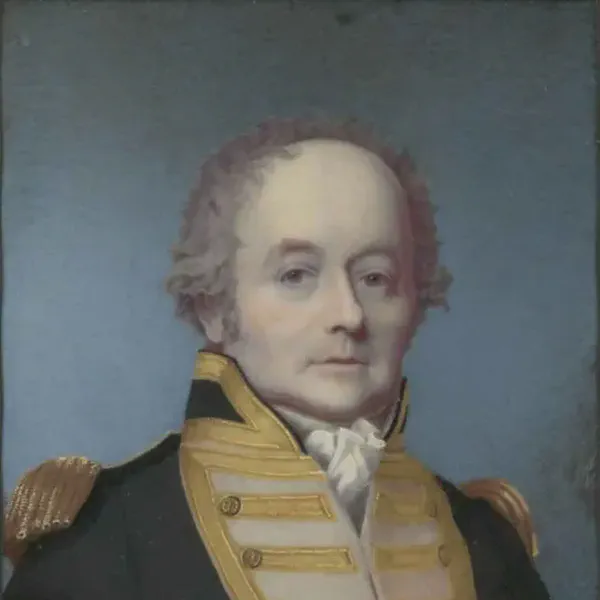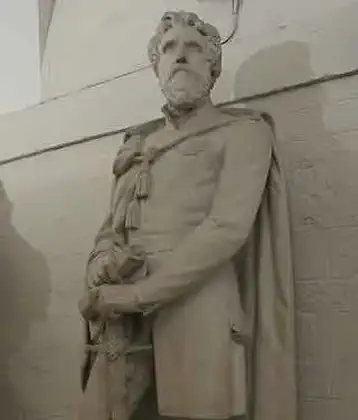On December 07, 1817 in Celtic History
Admiral william bligh cornishman of mutiny on the bounty fame, died

Vice-Admiral William Bligh FRS (9 September 1754 – 7 December 1817) was a British officer in the Royal Navy and a colonial administrator. He is best known for the mutiny on HMS Bounty, which occurred in 1789 when the ship was under his command.
After being set adrift in Bounty’s launch by the mutineers, Bligh and those loyal to him all reached Timor alive, after a journey of 3,618 nautical miles (6,700 km; 4,160 mi).
He died in London on 7 December 1817.
Early Career
Bligh joined the Royal Navy at the age of 15 and quickly rose through the ranks due to his navigational skills and discipline.
HMS Bounty Mutiny
In 1787, Bligh was appointed captain of the Bounty for a mission to transport breadfruit plants from Tahiti to the West Indies. The infamous mutiny occurred in April 1789 when a group of the crew, led by Fletcher Christian, seized control of the ship. Bligh and 18 loyal crew members were set adrift in a small boat. Despite the challenges, Bligh successfully navigated the open boat to Timor, a journey of over 3,500 miles.
Court-Martial and Acquittal
Upon his return to England, Bligh faced a court-martial to investigate the loss of the Bounty. Surprisingly, he was acquitted and praised for his handling of the mutiny.
Later Naval Career
Bligh continued his naval career and served in various capacities.
Governor NSW
Seventeen years after the Bounty mutiny, on 13 August 1806, Bligh was appointed Governor of New South Wales in Australia, with orders to clean up the corrupt rum trade of the New South Wales Corps.
Rum Rebellion
Bligh’s governorship in New South Wales was marked by conflicts with the military and settlers.
His actions directed against the trade resulted in the so-called Rum Rebellion, during which Bligh was placed under arrest on 26 January 1808 by the New South Wales Corps and deposed from his command, an act which the British Foreign Office later declared to be illegal.
He was arrested and sent back to England.
Later Life
Despite the controversies in his career, Bligh continued to serve in the Royal Navy and was promoted to vice admiral in 1814. He died in London in 1817.
Legacy
Bligh’s legacy is complex. While he faced mutiny and challenges in his career, he was also recognized for his navigational skills and accomplishments as a naval officer. The Bounty mutiny has been the subject of numerous books, films, and adaptations.
Bligh’s Voyages
Apart from the Bounty incident, Bligh participated in other significant voyages, including with Captain James Cook on his third and final voyage (1776–1780) and his own exploratory voyages in the Pacific.
More From This Day




Sir William Francis Patrick Napier, general and historian, is born in Celbridge, Co. Kildare
December 07, 1785

Francis Rawdon-Hastings, 1st Marquess of Hastings, soldier and colonial administrator, is born in Dublin
December 07, 1754

Thirteen Apprentice Boys refuse to let a Catholic army into Derry-Londonderry
December 07, 1688

James FitzGerald, 8th Earl of Desmond is murdered at the instigation of his brother, John
December 07, 1487

St. Columcille, Irish bard and monk honored in all the Celtic lands, born
December 07, 0521